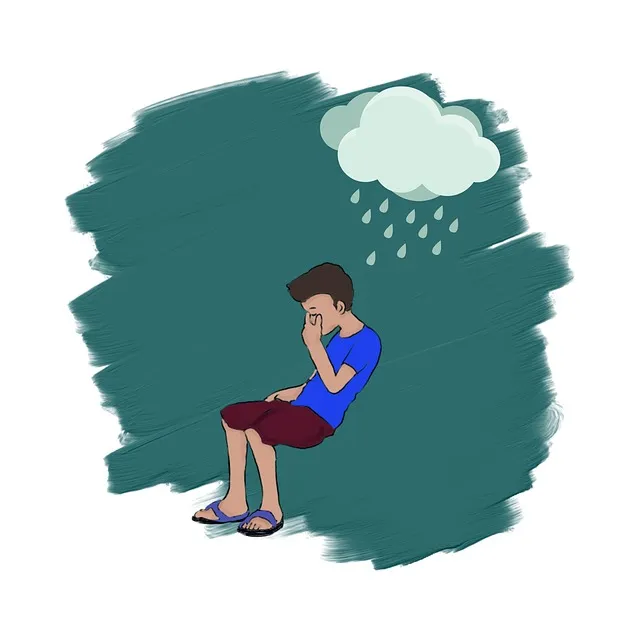Lone Tree Kaiser offers specialized Lone Tree Kaiser mental health classes targeting the multifaceted risks of substance abuse, addressing genetics, environment, and mental health issues. Through interactive sessions, practical stress management strategies, and a supportive community, these classes empower individuals to enhance emotional well-being, reduce triggers, and cultivate resilience for long-term recovery. Community engagement initiatives like Healthcare Provider Cultural Competency Training further strengthen this holistic approach, fostering a network that promotes mental wellness and mitigates substance abuse risks.
Substance abuse poses significant risks, but proactive strategies can mitigate these dangers. This article explores comprehensive risk reduction techniques, focusing on the vital role of Lone Tree Kaiser’s mental health classes in empowering individuals to overcome challenges. We delve into effective coping mechanisms taught through these classes, practical daily risk mitigation strategies, and the importance of community support for sustained recovery. By understanding the risks and leveraging available resources, such as Lone Tree Kaiser mental health classes, individuals can embark on a path towards healthier living.
- Understanding Substance Abuse Risks and Lone Tree Kaiser's Role
- Mental Health Classes: Equipping Individuals with Coping Mechanisms
- Practical Strategies for Daily Risk Mitigation
- Community Support and Additional Resources for Sustained Recovery
Understanding Substance Abuse Risks and Lone Tree Kaiser's Role

Substance abuse risks can stem from a complex interplay of genetic predisposition, environmental factors, and mental health issues. Understanding these risks is crucial in preventing and mitigating their impact. Lone Tree Kaiser plays a vital role in this domain by offering specialized mental health classes designed to equip individuals with tools for emotional healing processes. These classes cater to the specific needs of those facing substance abuse challenges, focusing on both the mind and body.
Lone Tree Kaiser’s approach extends beyond individual treatment; it emphasizes community engagement and education. Through its comprehensive programs, including Healthcare Provider Cultural Competency Training, Lone Tree Kaiser fosters a supportive environment that promotes mental wellness. By addressing underlying issues and providing resources for long-term recovery, Lone Tree Kaiser contributes to the overall well-being of individuals and communities, helping to reduce the risks associated with substance abuse.
Mental Health Classes: Equipping Individuals with Coping Mechanisms

Lone Tree Kaiser mental health classes play a pivotal role in empowering individuals to confront and overcome substance abuse issues by equipping them with effective coping mechanisms. These classes go beyond mere awareness, delving into practical strategies for stress management, anxiety relief, and emotional well-being. Through interactive sessions, participants learn to identify triggers, develop healthy coping habits, and build resilience against future challenges.
The focus on mental health awareness and empathy building strategies within these programs fosters a supportive environment where individuals can share experiences, gain insights, and offer mutual support. This holistic approach not only aids in substance abuse recovery but also promotes overall mental wellness, enabling participants to lead more fulfilling lives free from the shackles of addiction.
Practical Strategies for Daily Risk Mitigation

Incorporating practical strategies into daily routines can significantly reduce the risk of substance abuse and promote overall well-being. One effective method is to prioritize mental health and seek professional guidance when needed. Lone Tree Kaiser mental health classes, for instance, offer valuable tools for managing stress, anxiety, and trauma—common triggers for substance misuse. These classes foster a safe space to explore and develop coping mechanisms, such as mindfulness techniques and empathy-building strategies, which can be applied in everyday life.
Additionally, cultivating positive thinking and a supportive network can serve as powerful risk mitigants. Encouraging open communication with trusted individuals, engaging in activities that promote self-care, and accessing Trauma Support Services when facing challenging situations are all part of creating a robust defense against substance abuse. By combining these practical strategies with professional support, individuals can build resilience and make informed choices to lead healthier lives.
Community Support and Additional Resources for Sustained Recovery

Community support plays a pivotal role in sustaining recovery from substance abuse. Lone Tree Kaiser mental health classes offer specialized programs designed to equip individuals with effective coping skills and strategies for long-term wellness. These classes foster a sense of belonging and connection, providing a safe space to learn, grow, and share experiences with peers facing similar challenges. By participating in these supportive environments, individuals can develop resilience, build confidence, and enhance their overall mental wellness.
In addition to structured classes, Lone Tree Kaiser promotes access to diverse resources tailored to individual needs. This includes a range of support services, such as counseling, peer mentoring, and online communities, all aimed at bolstering recovery efforts. The Mental Wellness Podcast Series Production, for instance, offers valuable insights and interviews with experts in the field, providing practical tips for managing cravings, stress, and triggers. Through these comprehensive resources, individuals can continue to develop coping skills, maintain their focus on mental wellness, and stay on a path toward sustainable recovery.
In addressing substance abuse, a multi-faceted approach is key. By combining education through Lone Tree Kaiser’s mental health classes, practical daily strategies for risk mitigation, and robust community support, individuals can effectively navigate their recovery journey. These comprehensive risk reduction strategies empower folks to take control of their well-being and embrace a healthier, more fulfilling future.






